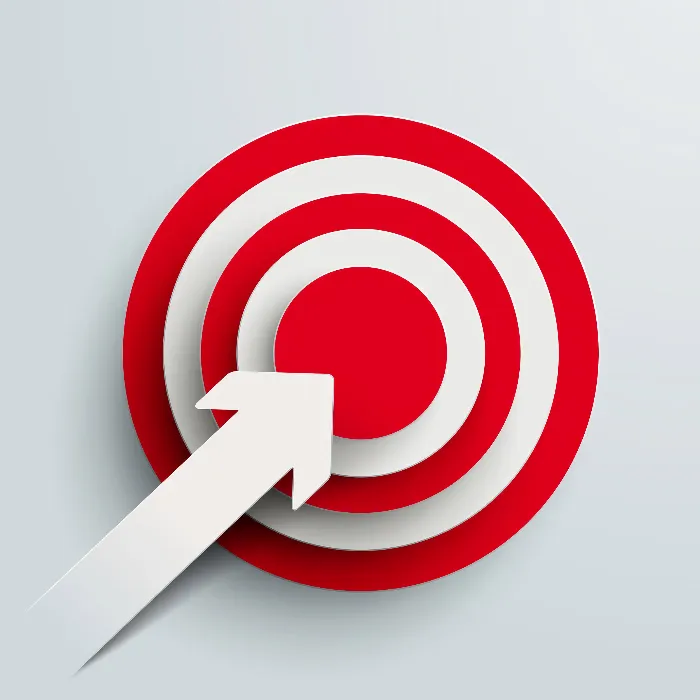The structure of your campaigns on social media and search engines is crucial to effectively reach potential customers. A well-thought-out division into campaigns, ad groups, ads, and keywords can increase the success of your marketing measures by up to 50%. Recognize the most common beginner mistakes and learn how to address your target audience with a clear strategy. This guide provides you with valuable tips on campaign structure so that you can optimally implement your advertising goals.
Key Insights
- A professional campaign structure is the key to success.
- The right selection and combination of keywords increases the relevance of your ads.
- Avoid overly broad ad groups; specific ad groups yield better results.
- Use the Keyword Planner for effective keyword research and strategy.
Step-by-Step Guide
Start by creating your campaign, which forms the foundation for the entire structure. Determine which bidding strategy you want to apply. It is advisable to set a daily budget of around €10 to keep the entry manageable. In this case, ensuring sufficient recipients is important to achieve basic visibility.
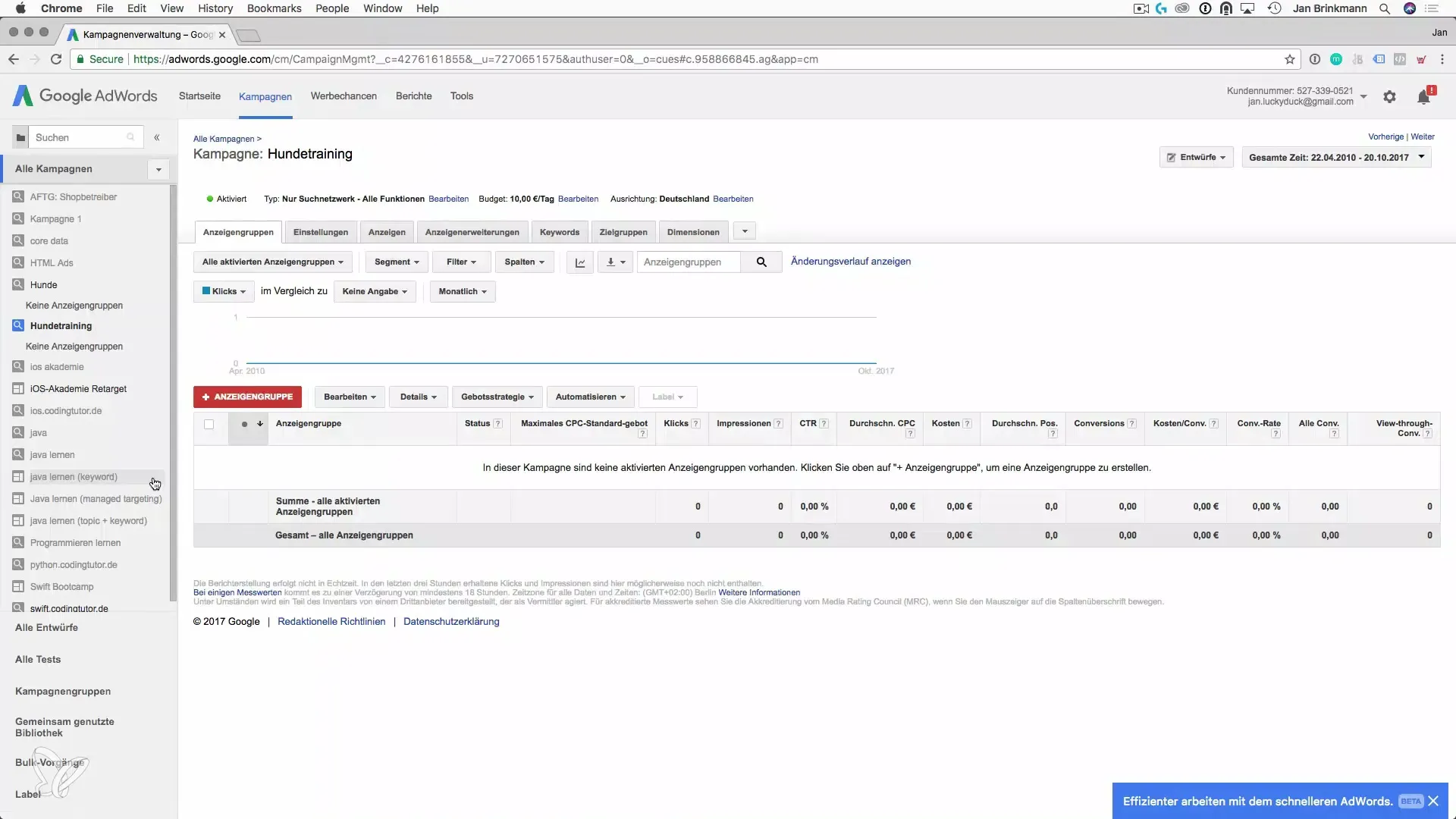
Next, create an ad group within the campaign. Begin by clearly defining your target audience. A common mistake to avoid is making ad groups too broad. Instead, ensure that each ad group contains only a few targeted keywords focused on a specific topic.
Use the Keyword Planner to find suitable keywords that potential customers might use to search for your services or products. Enter a relevant phrase like "dog training" into the Keyword Planner to discover which related keywords could spark interest. A keyword like "dog training" might have 2400 monthly searches, which is valuable for your strategy.
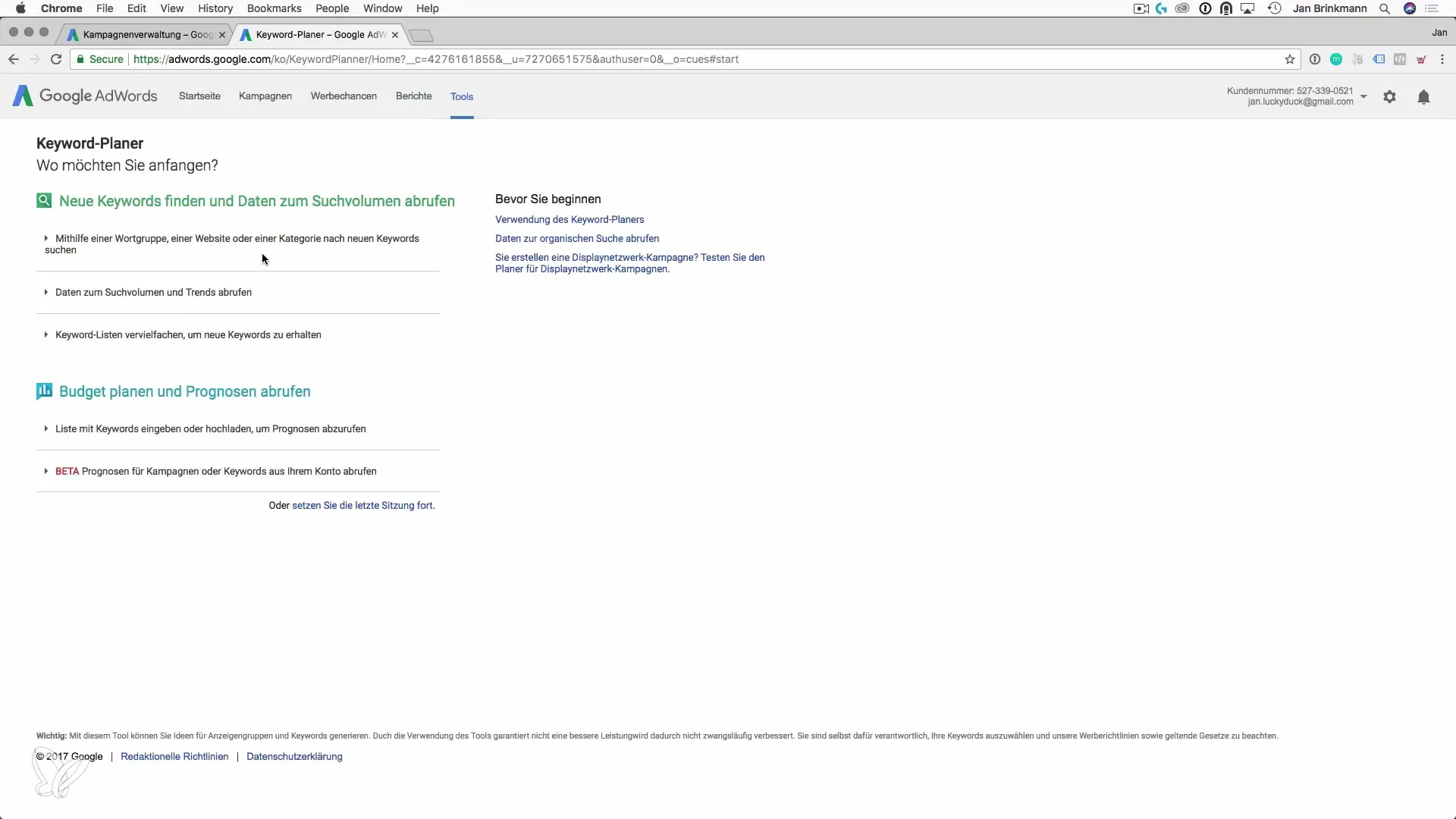
Also, make sure to choose keywords that are closely linked to the theme of your landing page. For example, if you have a landing page for dog training, ensure that the keywords are listed in a way that supports that specific page.

Create specific ad groups for different types of dogs. For example, you could create an ad group for "training Labradors" and make the messaging even more specific to target users more effectively.
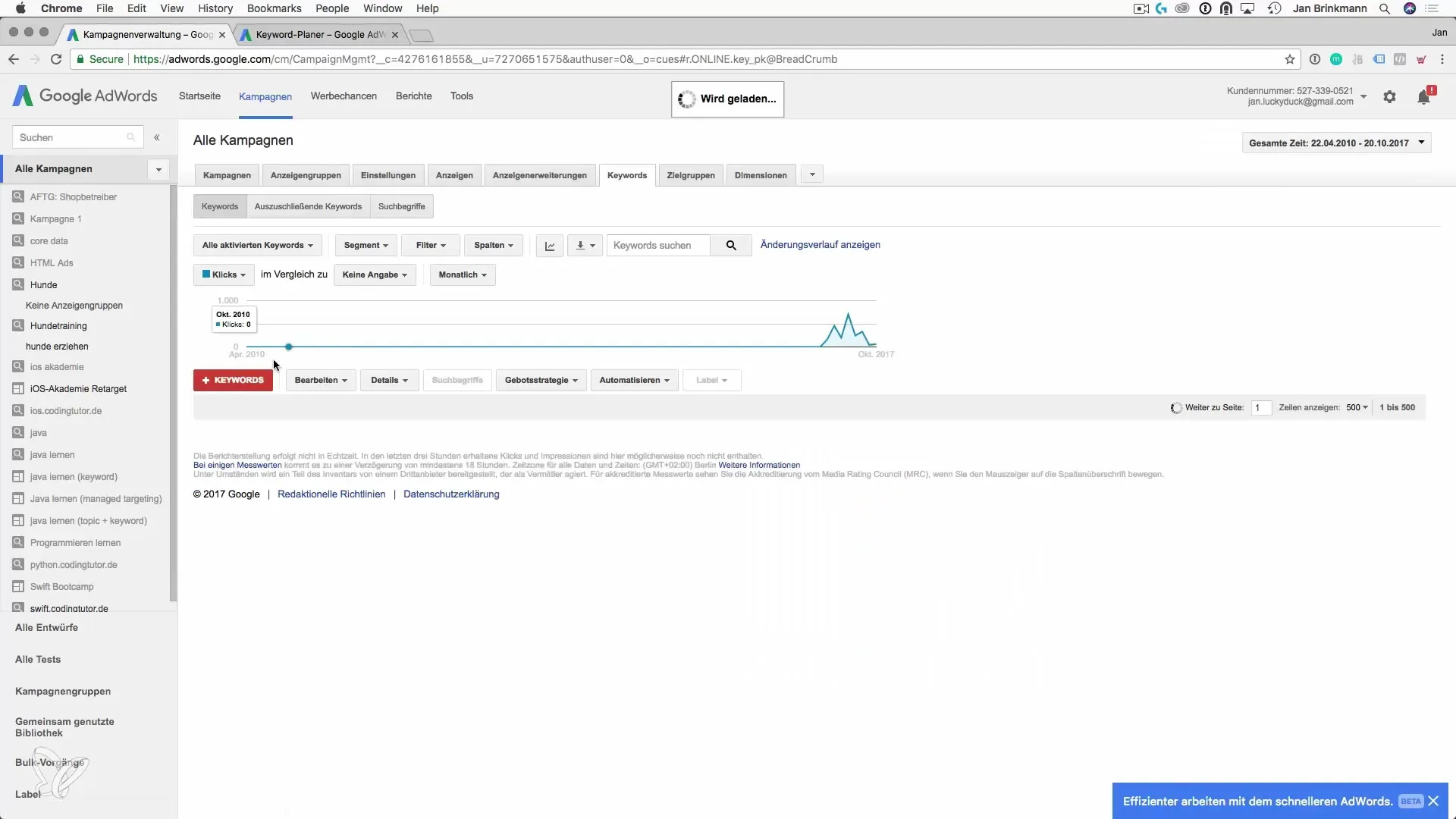
Each ad group should link to a specific landing page so that the customer who clicks on your ad goes directly to the information that interests them.
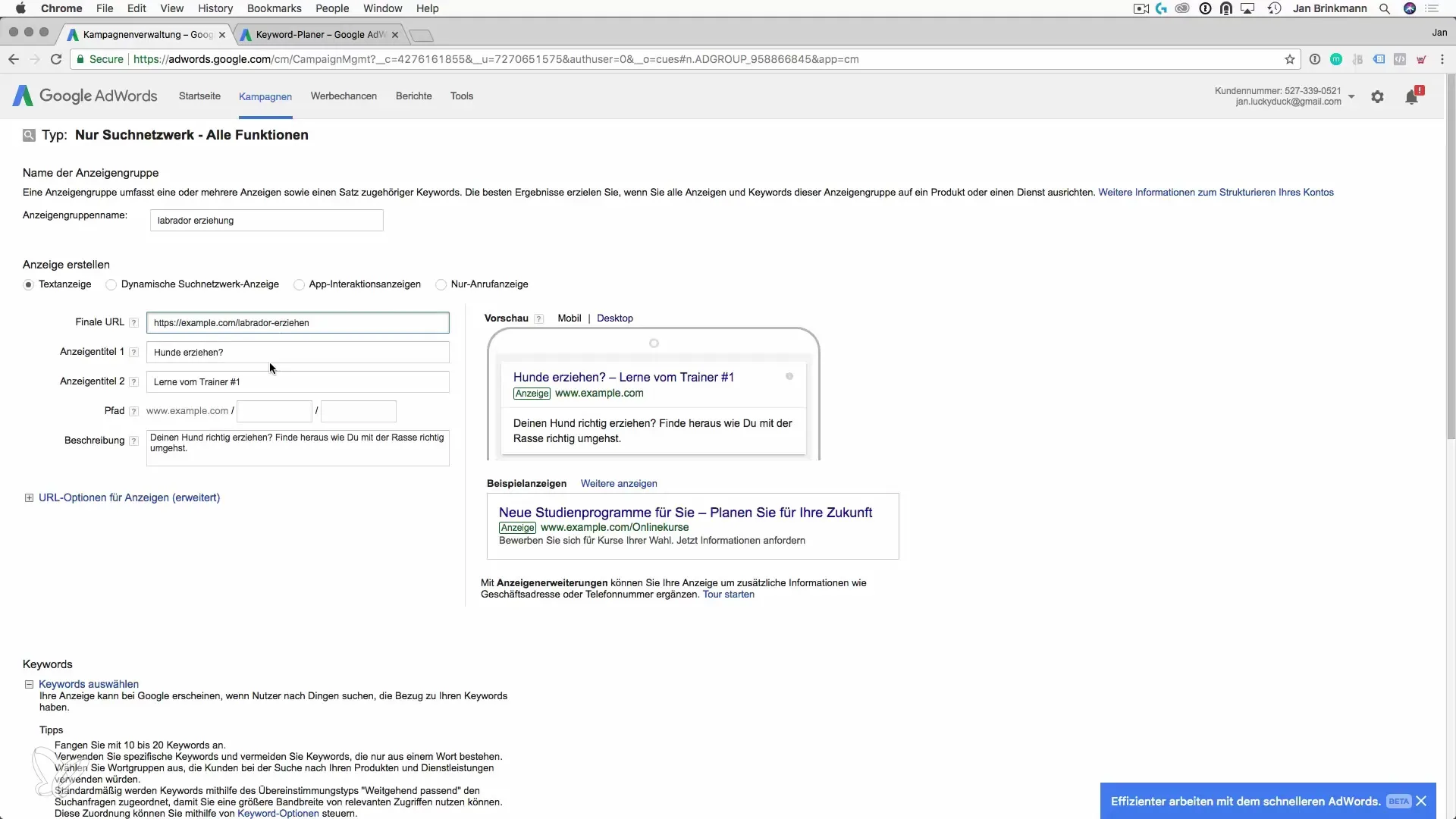
When selecting keywords, it's advisable to ensure that there aren't too many keywords. Ideally, limit ad groups to a maximum of 10 relevant keywords so that search queries can be addressed clearly and purposefully.
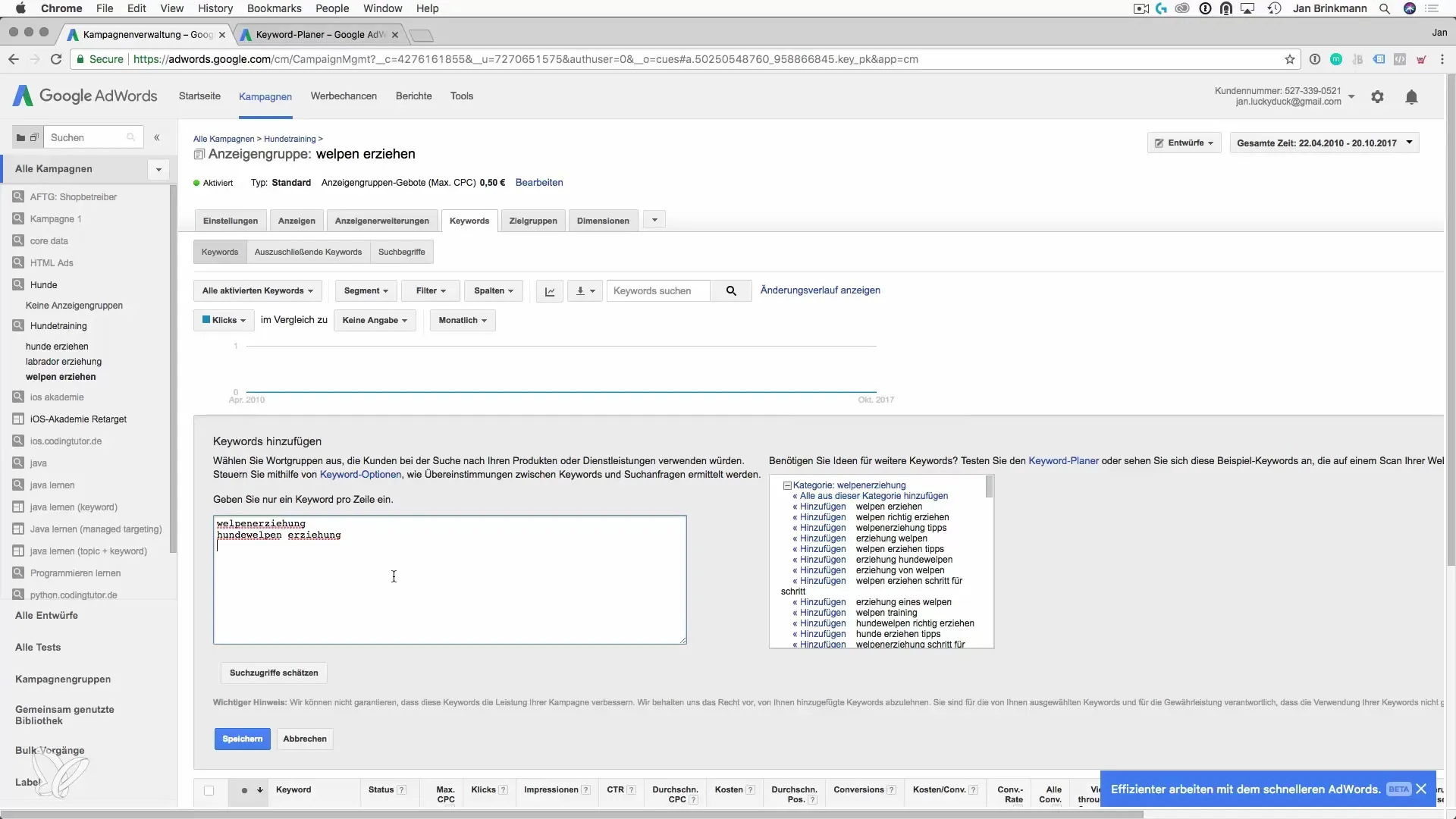
Before finalizing your ad groups, it's important to formulate an engaging, specific ad text. The ad text should directly address potential customers and communicate a clear value proposition. Keywords that appear in the ad title help increase relevance and boost the click-through rate.
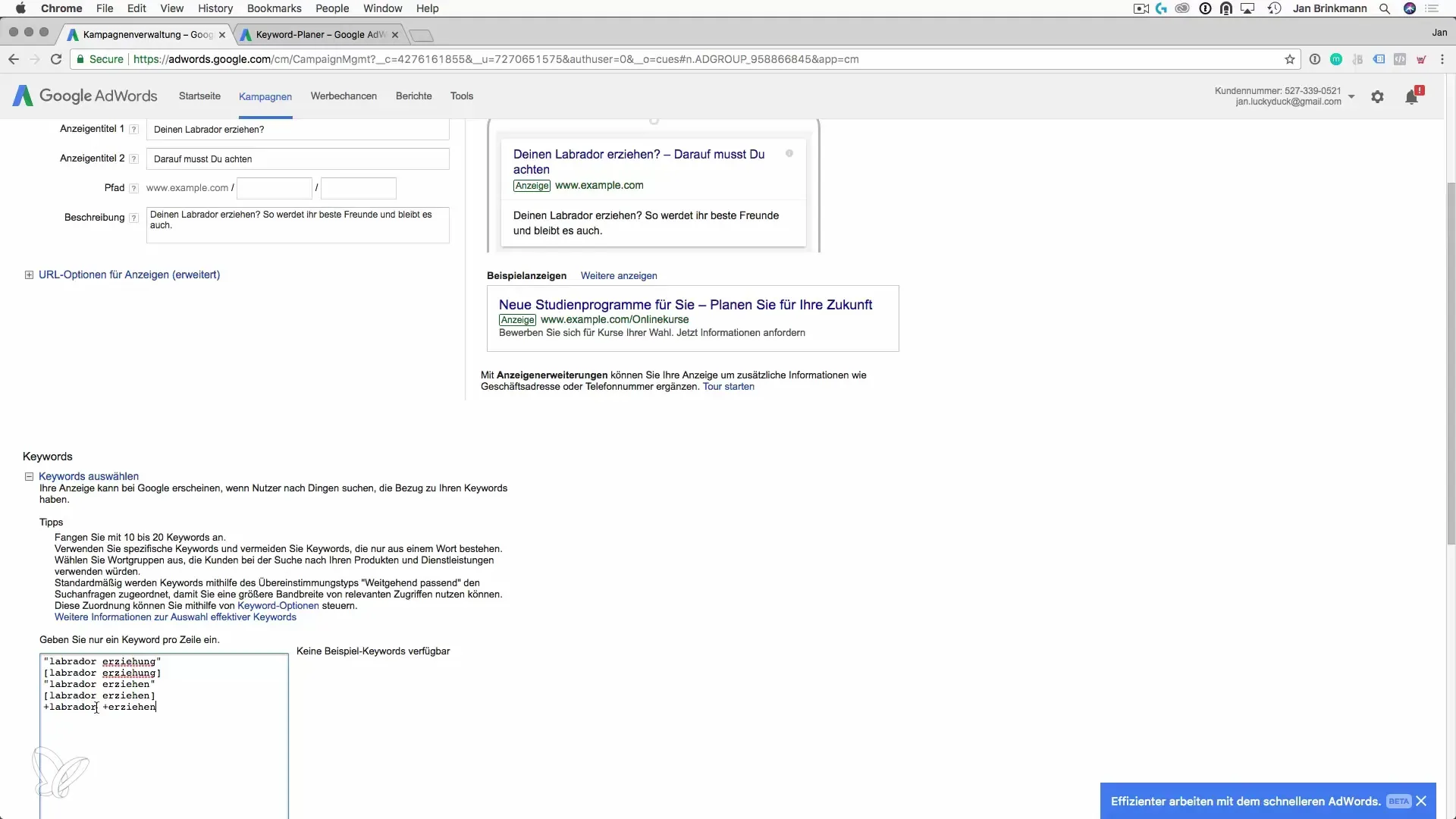
Make sure to also define negative keywords to avoid irrelevant clicks. If a keyword like "dog crate" is not sufficiently relevant to the ad, you can exclude it by defining a negative keyword.
Before you finalize your campaign, check both the bids for keywords and the relevance of your ads. A bid for the first page is crucial to significantly improve the visibility of your ads.
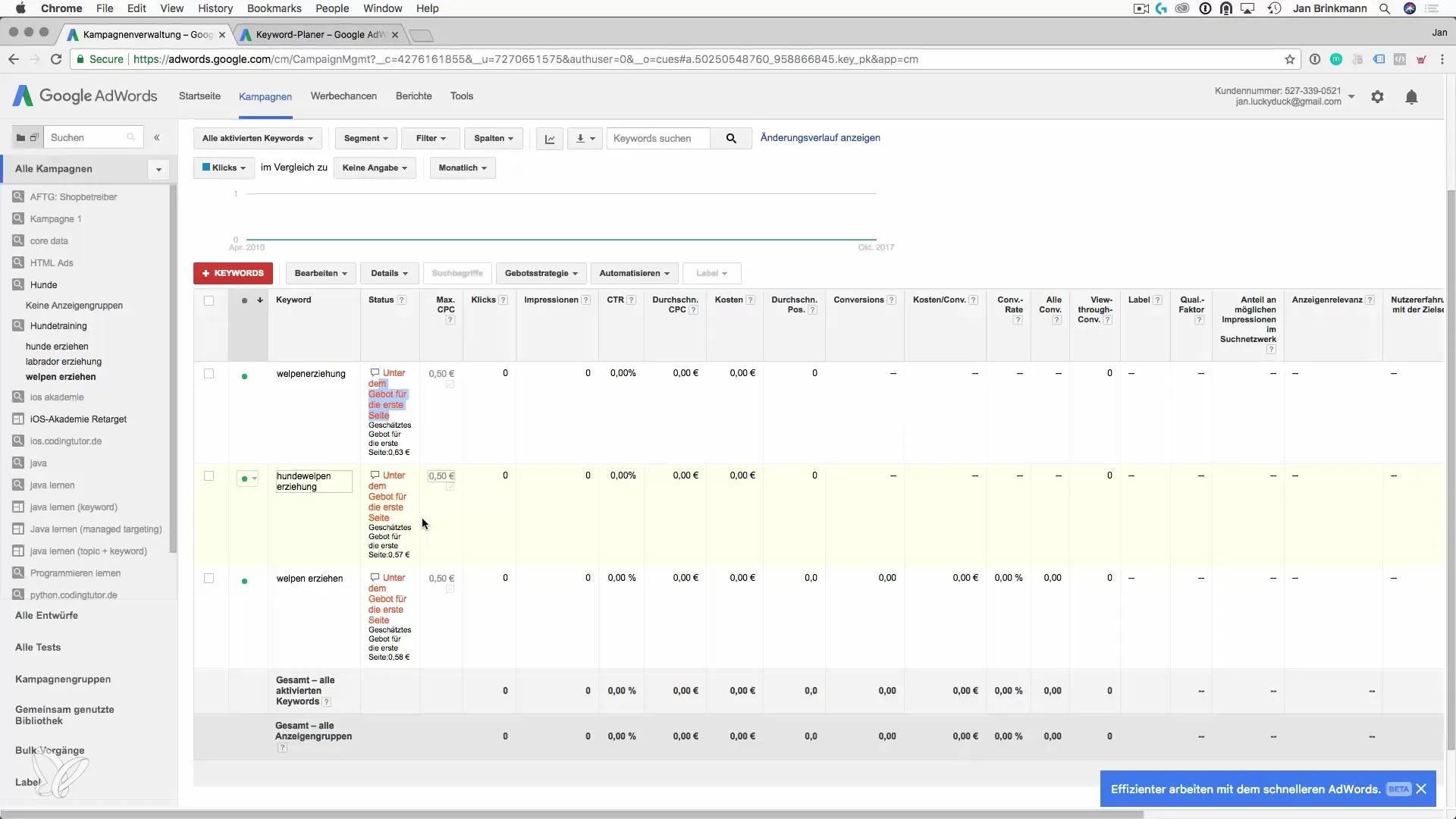
Summary - Optimal Campaign Structure for Customer Acquisition on Facebook and Google AdWords
The right campaign structure, combined with a thoughtful keyword strategy, significantly increases your chances of success in customer acquisition through Facebook and Google AdWords. Start with specific ad groups and a focused approach to optimize relevance.
Frequently Asked Questions
How many keywords should I use per ad group?Ideally, a maximum of 10 relevant keywords per ad group to maximize the quality and relevance of the ads.
How do I find suitable keywords for my campaign?Use Google's Keyword Planner to find relevant and frequently searched keywords that match your offering.
Why is a specific ad group important?Specific ad groups ensure that your ads are targeted to the right interested parties, increasing the click-through rate.
How do I handle irrelevant keywords?Define negative keywords in your campaign to exclude irrelevant search queries and improve the efficiency of your ad group.
How often should I review my campaign?It's advisable to review the campaign at least once a week to make adjustments and optimize performance.
